Chances are you’ve heard vacuum brands boast that their products have a HEPA filter. With their clear advantages over vacuum bags and standard filter, it’s no wonder why HEPA filters are a hot selling point. However, do you actually need a vacuum cleaner with a HEPA filter? Here’s what you need to know about HEPA filtration.

What HEPA Means
HEPA stands for high-efficiency particulate air. Although they look like any other ordinary filter, HEPA filters trap the vast majority of minute particles the vacuum collects, including dust, dander, and pollen. In fact, they are able to capture 99.97 percent of particles as small as 0.3 microns. For reference, a strand of hair on a human head measures 100 micrometers wide, which measures 300 times wider the aforementioned allergens.
How a HEPA Filter Traps Particles
Whether a HEPA filter is an HVAC unit or a vacuum cleaner, the process in which it keeps contaminants from becoming airborne works in the same manner. This process occurs in four simultaneous steps. There are surface fibers to which many particles cling, which occurs to the majority of contaminants.
Fibers are also embedded deep within the filter, capturing the particles that manage to penetrate the filter’s surface. Sometimes, gas causes the particles to ping around before they too hit the filter’s fibers and become stuck. It’s also possible for allergens to get lodged in between fibers.
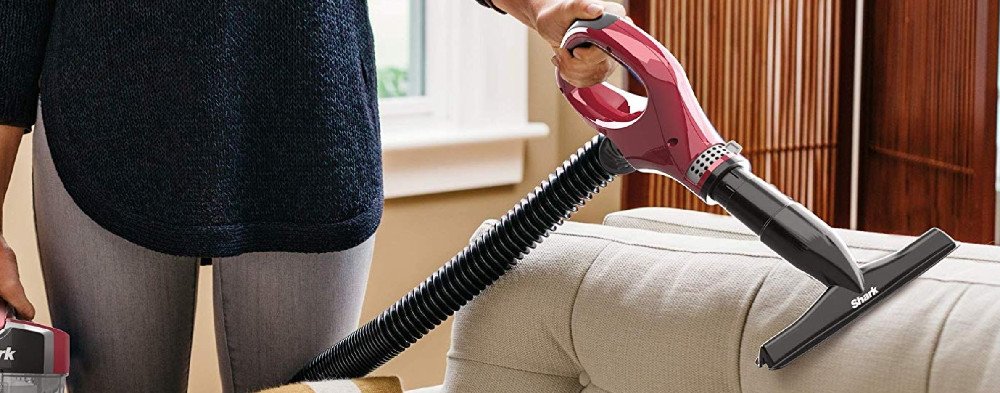
True-HEPA Versus HEPA-Type
Other terms you may have come across are HEPA-type or HEPA-style, which are substandard versions of the real deal. Manufacturers often use these filters in place of true-HEPA filters to drive down the retail cost of their vacuum cleaners, and unknowing consumers believe they are getting the benefits that come along with HEPA filtration.
However, this kind of vacuum filter doesn’t pack the punch that a HEPA filter does. At best, a HEPA-type filter only traps 80 to 90 percent of particles, and it can’t capture ultra-small particles like a HEPA filter. In fact, HEPA-type filters can only hold onto particles with a width of 1 micron, allowing a lot of bacteria, dust, and dander to escape into the air.
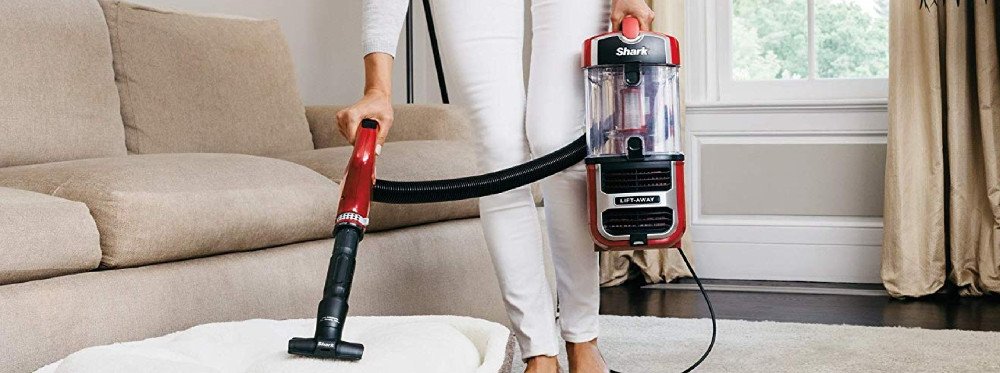
People Who Get the Most Benefit From a HEPA-Equipped Vacuum
With their particle-capturing capabilities, HEPA filters are always a plus when it comes to vacuums. For those who suffer from allergies, asthma, chronic obstructive pulmonary disease or other respiratory illnesses, using a vacuum with a HEPA filter ensures that the particles most likely to trigger their symptoms will be trapped inside of the vacuum cleaner. When used as part of a holistic approach to healthcare, a HEPA vacuum can help keep these conditions under control.
Those who own cats or dogs know that there is no escaping the hair they shed, and the dander that sticks to it. However, HEPA filters are well-adept at trapping dander. In homes that have carpet, allergens can settle deep into the carpet’s fibers where they are constantly kicked up into the air. Vacuums without a HEPA filter may expel particles as large as 50 microns, but vacuums with a genuine HEPA filter can remove smaller particles from a carpet.
You don’t have to own pets or suffer from a respiratory condition to buy a vacuum with a HEPA filter. If you simply want your home to be healthy and keep harmful contaminants out of the air and off your floors, a HEPA vacuum cleaner can help you achieve those goals.
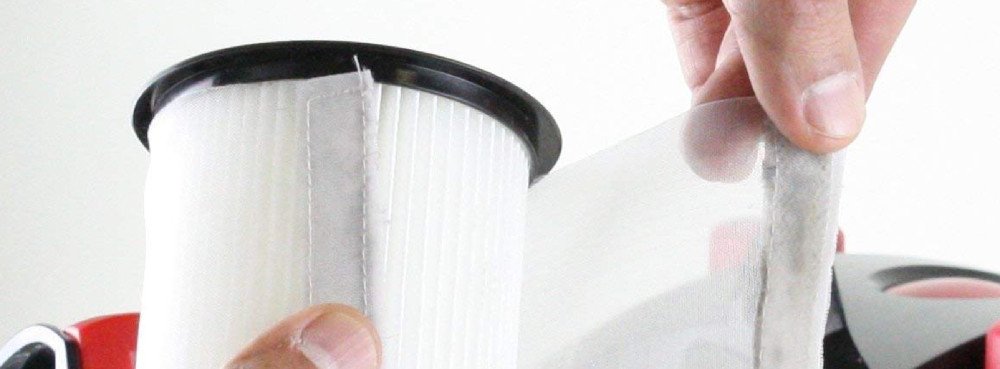
Primary Filters Versus Secondary Filters
It’s common for a vacuum cleaner to contain more than one filter. In a HEPA vacuum, the HEPA filter is usually the main filter. Since the main filter is the first one that allergens pass through, it catches the most particles.
The secondary filter is typically located near the vacuum cleaner’s exhaust outlet or in front of the main filter. This filter may or may not be a HEPA filter. When positioned near the exhaust, it captures loose particles, so they don’t find their way to the air you breathe. A secondary filter also protects the vacuum’s motor and electronic components from dust-related damage. If it’s situated in front of the main filter, it becomes a pre-filter, capturing large particles that might clog the vacuum.
Other Types of Filters
Vacuum cleaner filters come in a variety of styles. Even though the following filters aren’t HEPA filters, it’s important to know the difference between each standard filter, so you know what your money is buying. Some filters are cartridge-style filters, which are usually pleated. These filters are cylindrical and affixed with rubber casings that allow you to easily remove them.
There are also cloth filters. While some vacuum cleaners, like handheld vacs, have a cloth filter, vacuum manufacturers are steering away from cloth filters in favor of more efficient styles. On the upside, cloth filters last through multiple washes before they need to be replaced.
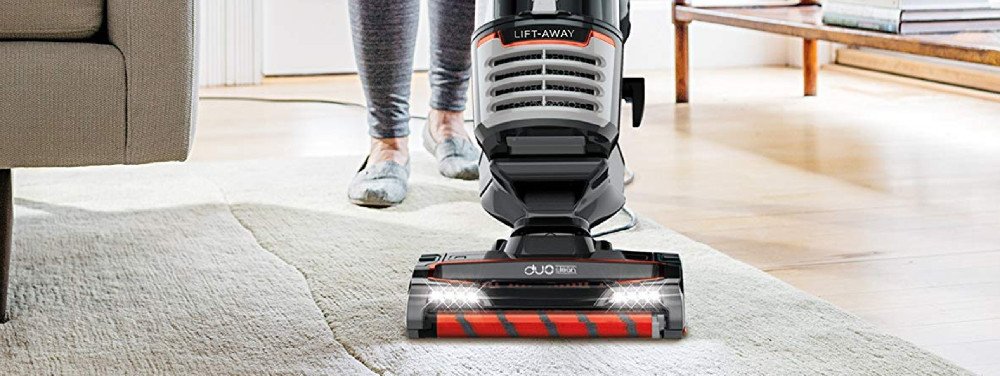
Foam filters are also found in vacuum cleaners. These filters aren’t known for their efficiency as the main filter, but they do a decent job when used as a secondary filter. Like cloth filters, most foam filters can be cleaned and reused.
Deodorizing filters aren’t the most common type of non-HEPA filter. However, they earn their place in vacuum filtration by neutralizing odors that come from the dirt and debris lifted by a vacuum cleaner. Pay attention to the odor-fighting ingredient in the filter as some only disguise unpleasant smells instead of neutralizing them.
There are other styles of filters, such as wet-dry filters and ULPA, or ultra low penetration air, filters You won’t see these in the standard fare of upright or canister vacuums. Wet-dry filters are used exclusively for wet-dry vacs, and ULPA filters are designed for use in dirt-sensitive places like medical laboratories.
Determining the Efficiency of a HEPA Filter
It’s not always easy to figure out how efficiently a HEPA filter operates. By law, manufacturers are not required to test their HEPA filters; however, many do to meet the demand of consumers. HEPA filters that have been tested will have the test results or a serial number you can reference stamped on the filter.
Other HEPA filters may be marked with a MERV rating. The MERV, or minimum efficiency reporting value, the scale was developed in the 1980s by the ASHRAE, or the American Society of Heating, Refrigerating and Air-Conditioning Engineers. A filter’s MERV rating can range from 1 to 20. The higher the MERV rating, the more and smaller particles the filter can trap.
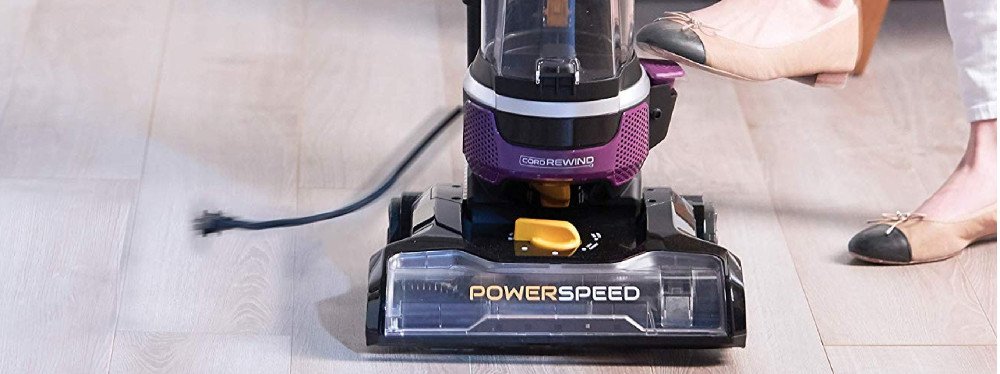
The Longevity of HEPA Filters
Regular maintenance is key to keeping a HEPA filter working at its optimal efficiency. Although HEPA filters are more expensive than standard ones, they last longer, which means you spend about the same or even less on a HEPA filter if you look at the math on a per-month basis. The frequency of which you need to replace your vacuum cleaner’s filter depends on the manufacturer’s instructions. Some HEPA filters last a few months while others remain effective for a year or more.
There are also HEPA filters that you can clean and reuse. Usually, all that’s involved with cleaning a reusable HEPA filter is rinsing it and letting it dry before you reinsert it into your vacuum. Again, refer to the manufacturer’s instructions and follow the filter’s care guidelines.
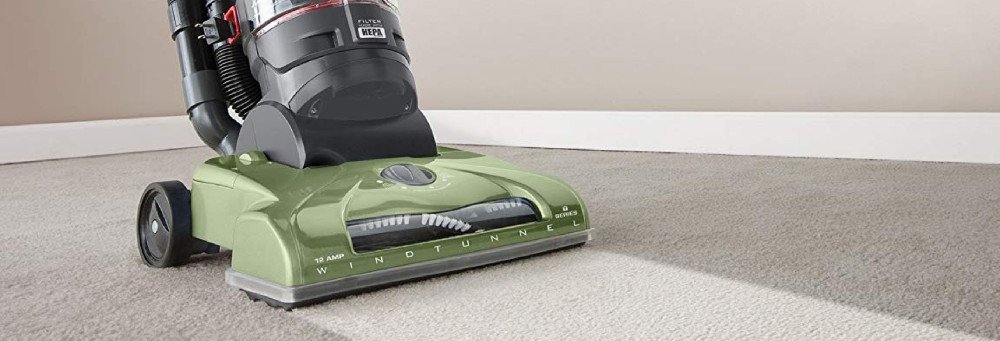
Tips for Choosing a Reliable HEPA Vacuum Cleaner
Even though a vacuum cleaner’s specs indicate that the vacuum has a HEPA filter, the mere presence of a HEPA filter is no guarantee that the vacuum’s filtration performance will be acceptable. To ensure that a vacuum cleaner will trap the majority of minuscule allergens, the filtration system should be completely sealed. This means all gaps in the motor’s housing must be covered by rubber gaskets.
The vacuum’s suction needs to be strong enough to force air through the filter, especially if the HEPA filter has a high MERV rating. Also, pay attention to where the fan is located. If the fan is positioned after the vacuum’s bag or cup, fewer allergens can escape.
In order to get the most use from a HEPA filter, you need a vacuum cleaner that also has a pre-filter. This is a must because it extends the lifespan of the HEPA filter. If the vacuum you want is a bagged version, the bag should be equipped with sealing flaps, which keep dust from escaping during bag changes.

Other Features to Look for When Shopping for a HEPA Vacuum
After you determine that the vacuum cleaner’s HEPA filtration system meets your standards, turn your attention the vacuum’s other features. A high-quality vacuum should offer on-board storage for its attachments and hose. The hose and the power cord should be long – A retractable cord will save you time and hassle.
Don’t forget to look at where the manufacturer puts the controls. They should be easy to reach; controls on the handle are the most convenient. If the vacuum’s floor nozzle doesn’t auto-adjust to the height of the floor it’s cleaning, get a vacuum that at least lets you raise and lower the nozzle yourself. You also want a maneuverable vacuum has a lightweight, a pivoting nozzle and a set of non-marking wheels.
HEPA Vacuum Filter: The Main Benefits
There are three takeaways to remember about vacuums with a HEPA filter. They reduce the volume of pollutants in the air, making the air quality better and safer for you and your family. These vacuum cleaners can also decrease the number and severity of asthma and allergy episodes in those who have these conditions.

Sources
PMC US National Library of Medicina National Institutes of Health
US Department Of Labor
Wikipedia
If you have any questions or comments, please add them below in the comment section. Similarly, please let us know if you spot any mistakes or omissions. Thanks!
